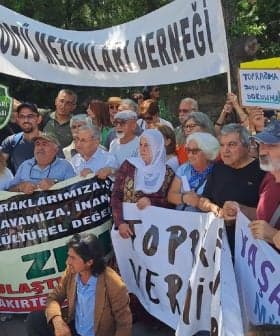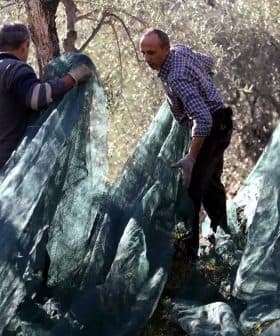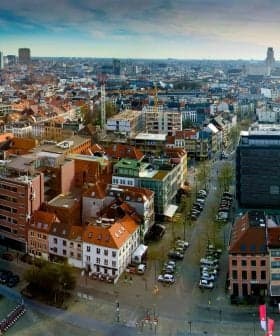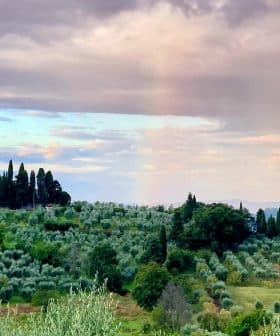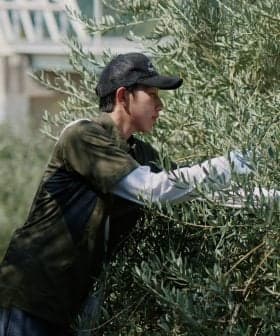Historic Flooding in Southern Brazil Spares Mills and Olive Groves
Producers are struggling in the aftermath of the worst flooding in Rio Grande do Sul’s history. While mills and groves were largely spared, sales have been severely impacted.
 15 May 2024, Brazil, Arroio Do Meio: Rio Grande do Sul has been severely affected by devastating floods. (Photo: Antonio Valiente/picture-alliance/dpa/AP Images)
15 May 2024, Brazil, Arroio Do Meio: Rio Grande do Sul has been severely affected by devastating floods. (Photo: Antonio Valiente/picture-alliance/dpa/AP Images) In Brazil’s southernmost state of Rio Grande do Sul, unprecedented rainfall has caused historic floods, resulting in 157 deaths, 88 missing persons, and displacing 650,000 people. While the flooding did not directly impact olive groves, mills, or the harvest, it has paralyzed logistics, preventing producers from selling their olive oil locally and internationally.
Unprecedented rainfall has devastated hundreds of towns and communities in Brazil’s southernmost state of Rio Grande do Sul, and authorities fear more may be coming.
In the past month, Brazil’s most significant olive-growing state has received 800 millimeters of rain, more than London gets annually.
It’s been a nightmare. Nobody knows what to do next. The government doesn’t know what is going to happen. There’s a sense in some areas that people don’t want to live there anymore.
The rain has resulted in historic floods, with 157 people killed and 88 still missing. A further 650,000 people have been displaced, more than a quarter of the state’s population.
Along with the human toll, the flooding has caused an estimated $2 billion (€1.85 billion) of damage and disrupted the state’s olive oil sales and shipping.
See Also:Extreme Weather Events Are Getting Worse, Report FindsHowever, local producers confirmed to Olive Oil Times that the flooding did not disrupt the harvest, which concluded in April and did limited damage to groves and mills.
“Olive groves are planted in high areas,” said Rafael Sittoni Goelzer, the marketing relations director of Viamão-based Estância das Oliveiras, situated in a flood-affected area east of Porto Alegre.
“We do not have olive groves in Brazil in coastal or low-lying areas, so no orchard in the state had direct impacts from the floods,” he added. “The mills are located close to the planting areas and are not impacted either.”
However, the award-winning producer added that logistics had been indefinitely paralyzed, making transporting the olive oil from the latest harvest to supermarkets and specialty food stores impossible.
“In addition to having around 50 highway points with blockages, the only international airport in the state is under water, with no expected return to operation,” Goelzer said. “We are unable to transport our products within the state, and we are having difficulties sending the oils to other states and countries.”
Unable to sell his olive oil, Goelzer said the company is focused on supporting rescue efforts. He and his team are working to collect food, water, clothing and mattresses for some of the 76,000 people forced out of their homes.
Rafael Marchetti, the chief executive of Prosperato, Brazil’s largest olive oil producer, confirmed that sales have slowed as the state braces for further flooding with more rain in the forecast.
“We were about to start selling the olive oil produced from the latest harvest,” Marchetti said. “We had everything prepared, and the day we were scheduled to announce its release, the flooding began.”
“Our house got flooded, but we only had material losses. My family and I are all fine,” he added. “Porto Alegre and nearby cities are in chaos. The main highways are blocked, and our olive oil sales are practically frozen because transport companies are unable to make the routes.”
At the onset of the heavy rainfall, which began in the last week of April, Marchetti decided to wait a few days to see if the flooding would subside before releasing the latest harvest’s extra virgin olive oils.
However, the flood waters continued to rise, and meteorologists predict that it could take more than a month for them to subside.
“It’s been [three] weeks, and the company’s sales are frozen, even from our local shop at the mill,” Marchetti said. While the store remains open, foot traffic has fallen substantially.
Prosperato sells a large portion of its extra virgin olive oil in Porto Alegre and the rest of Rio Grande do Sul. The company also sells in São Paulo and Rio de Janeiro but has been unable to transport the oils there.
“The transport companies cannot tell us when they will work again,” Marchetti said. “The main road to access Porto Alegre is still blocked.”
“All the customers know that things are going to take a longer time to get them,” he added. “They understand the situation and are waiting for their orders to arrive.”
Since the company’s mill and groves are located at higher elevations, they were not damaged, and bottling, capping and labeling continue.
“We are working to be ready for the new harvest and for when the situation returns to normal,” Marchetti said. However, some of the olive oil cannot be bottled because a shipment of caps did not arrive due to the flooding, which damaged the supplier’s warehouse.
Farther west in the state, the producers behind Lagar H are working to rebuild the damaged infrastructure supporting their olive grove and the local community.
The company’s olive groves are near Cachoeira do Sul, about 160 kilometers west of Porto Alegre on the Jacui River.
“We are very impacted by this tragedy,” said co-owner Glenda Haas. “Our entire family is from Rio Grande do Sul, and although personally, everyone is fine, it is very difficult to see the pain and loss of so many people in a place that means so much to us.”
“Some employees have had to leave their homes, but we are helping them with reconstruction and purchasing necessary goods,” she added.
While the company’s olive groves were not harmed, Haas said the extreme rainfall damaged some of their drainage and culverts, which take excess water away from the trees.
Like many of her colleagues, Haas completed the harvest before the rain began and shipped her latest olive oil production to distribution centers in São Paulo before the flooding started.
“We are currently helping numerous institutions and voluntary movements with donations of money or olive oil, in addition to providing all the necessary support to our employees directly,” she said.
The natural disaster comes after a poor harvest in southern Brazil, provoked by previous rains that fell from September through December.
“By the time the olives were flowering during September, we had a lot of rain,” Marchetti said. This resulted in some blossoms falling from the tree and failing to become olives.
However, the continued rain throughout November and December helped increase the oil yield in the remaining olives to levels significantly above average.
Overall, Prosperato’s harvest declined about 30 percent from previous years. Not all growers were as lucky.
Along with olives from the company’s groves, Prosperato sources olives from about 20 other regional farmers. “Some other producers lost 90 or even 100 percent of their harvest,” Marchetti said. “This year, we only bought olives from two of our usual partners.”
Marchetti lives in Guaíbo, a city near Porto Alegre on the western shores of Guaíba Lake. As the lake began to rise, reaching a record-high 5.3 meters in some places, Marchetti left to stay with his sister, who lives in the north of the state.
He plans to return and start rebuilding as soon as the waters subside but does not know what he will return to and how he will begin to rebuild, a feeling shared by many of the 2.2 million residents of Rio Grande do Sul.
“It’s been a nightmare. Nobody knows what to do next,” he concluded. “The government doesn’t know what is going to happen. There’s a sense in some areas that people don’t want to live there anymore.”
Share this article




